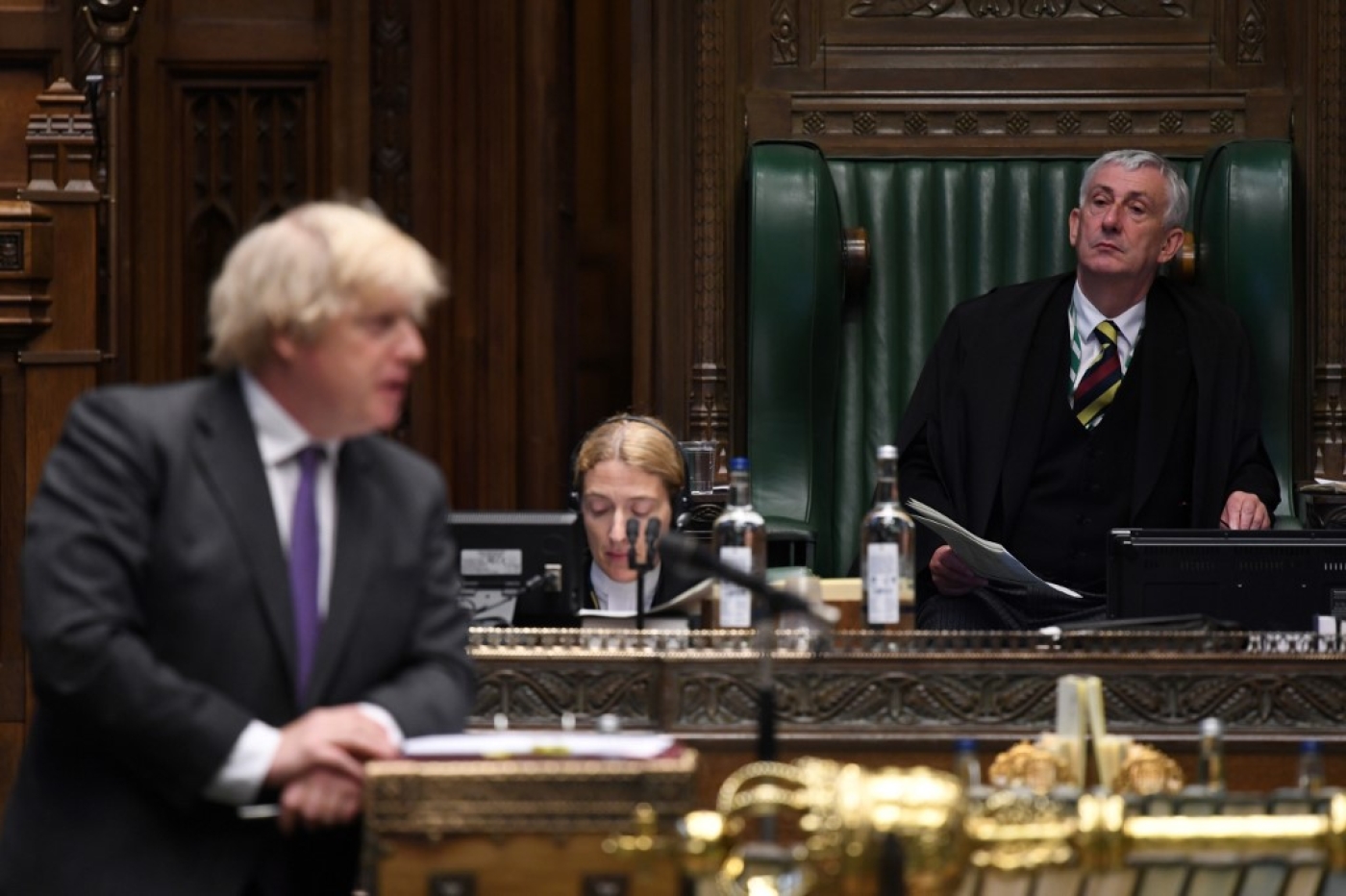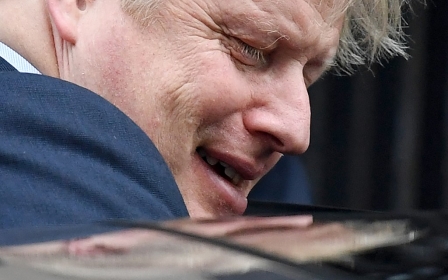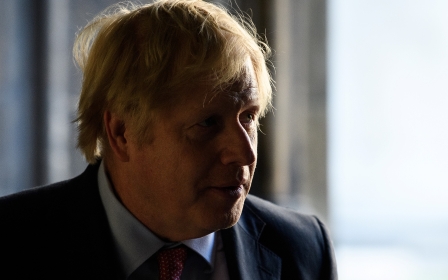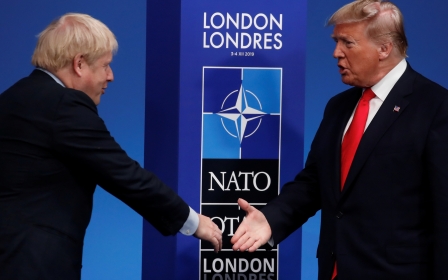The death of truth: Boris Johnson joins the ranks of Putin, Sisi and MBS
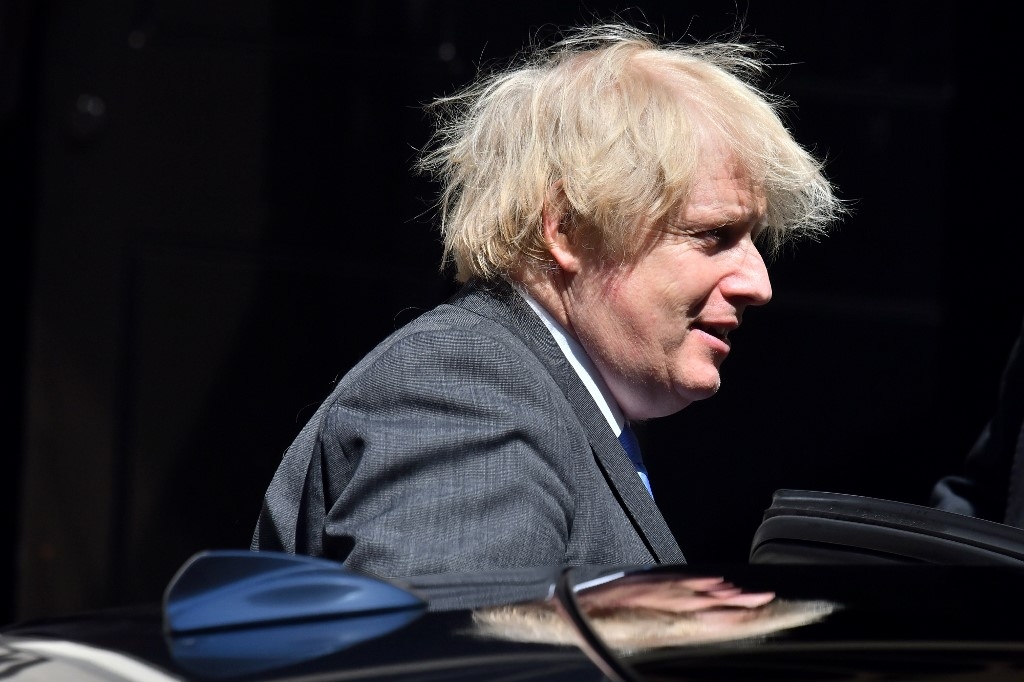
I have reported on British politics for almost three decades, and have never encountered a senior British politician who lies, cheats and fabricates as habitually or systematically - or with as much inventive relish - as British Prime Minister Boris Johnson. Or gets away with deceit with such ease.
Not Margaret Thatcher, who was regularly (though in my view often unfairly) accused of lying by the left. Not even Tony Blair. To his credit, somewhere in Blair there actually lurked a sense of shame; he reacted with resentment, anger and denial when critics claimed that he lied.
Not so Johnson. With him, we have entered a fifth dimension, where there is no distinction at all between fact and fiction or truth and falsehood.
Questionable statistics
We witnessed another iteration of this new and sinister political epistemology at the prime minister’s question time on Wednesday, when Johnson produced questionable statistics on child poverty for the second week running.
Labour leader Keir Starmer demanded a retraction after the children’s commissioner dismissed as false the prime ministerial claim that there are 400,000 fewer families in poverty now than in 2010. At this point, a normal premier with a properly functional sense of propriety would have apologised and corrected the record. Not so Johnson, who simply doubled down with a further batch of dubious statistics purporting to show that child poverty had gone down under Tory governments.
Misleading the House of Commons used to be a resignation issue. Think of John Profumo, the war secretary who resigned in disgrace more than 50 years ago after lying to the Commons over his personal life.
The Ministerial Code - signed off by Johnson himself as prime minister - states that: “It is of paramount importance that ministers give accurate and truthful information to Parliament, correcting any inadvertent error at the earliest opportunity. Ministers who knowingly mislead Parliament will be expected to offer their resignation to the Prime Minister.”
It couldn’t be clearer. And yet Johnson - who as prime minister should be setting an example of integrity - now has a long series of false statements on the Hansard record of the House of Commons. I know this because I have been keeping a note each time I see him, or his ministers, make misleading statements to MPs.
Monstrous deceit
On Tuesday, Johnson told the Commons that “no country currently has a functioning track and trace app”. I count at least five countries that have such apps up and running.
Last week in the House of Commons, Johnson told Labour MP Mary Kelly Foy that there had been a “massive consultation over a long period” on the controversial decision to merge the Foreign Office with the Department for International Development.
However, since then, a number of development professionals, including some of Britain’s largest charities, disputed the claim, and nearly 200 aid organisations and charities have called on Johnson to reconsider his decision.
It goes on and on. And that’s before we get to the falsehoods and lies that the British prime minister tells outside the Commons. A list of many of them can be found on a website I started last year. I kept it going until general election day in December, then gave up the task as too onerous, exhausting and time-consuming.
When I wrote my book, The Rise of Political Lying, 15 years ago, I was withering about Blair and his ministers. And it must be said that Blair’s monstrous deceit about Saddam Hussein’s weapons of mass destruction to justify an illegal invasion was more serious - far more serious because the consequences were so dreadful - than any of Johnson’s lies thus far.
And Blair may have paved the way for Johnson by crashing the distinction between truth and falsehood over Iraq. Yet, Johnson’s lies inhabit a different moral universe; he sprays out lies like confetti at a wedding in a way that Blair never did.
Grotesque phenomenon
This means that Johnson can only be understood as part of a grotesque and terrifying global phenomenon of leaders who regard truth as contingent and entirely unimportant.
The Middle East is full of them. Consider the case of Saudi Crown Prince Mohammed bin Salman, who has repeatedly denied having any role in the shocking murder of journalist Jamal Khashoggi, and who routinely classifies his domestic political opponents as terrorists.
Think of President Abdel Fattah al-Sisi of Egypt. Last month, Shady Habash, a 24-year-old filmmaker, was found dead in prison after being arrested for directing a music video that referred to Sisi using the Egyptian slang term “Balaha”, referencing a character in an Egyptian film who is a notorious liar. The term is often used by critics to mock the president.
Think of Indian Prime Minister Narendra Modi, whose home minister, Amit Shah, is regularly accused of lying. Both Shah and Modi have made a number of false statements on controversial new citizenship laws that threaten to discriminate against the Muslim population.
Like Johnson, these world leaders inhabit a hideous universe where truth and lies are the same thing; where there is no political price to pay for deceit and falsehood.
I’ve been reading with deep interest a book by New York Times writer Michiko Kakutani: The Death of Truth: Notes on Falsehood in the Age of Trump.
It starts as follows: “Two of the most monstrous regimes in human history came to power in the twentieth century, and both were predicated upon the violation and despoiling of truth, upon the knowledge that cynicism and weariness and fear can make people susceptible to the lies and false promises of leaders bent on unconditional power.”
This is a dangerous, barbarous world, where leaders cannot be held to account, and very bad things will happen with no consequences
Kakutani quotes the magnificent political philosopher Hannah Arendt in The Origins of Totalitarianism: “The ideal subject of totalitarian rule is not the convinced Nazi or the convinced Communist, but people for whom the distinction between fact and fiction (i.e., the reality of experience) and the distinction between true and false (i.e., the standards of thought) no longer exist.”
Kakutani also quotes from a Rand Corporation report on the “Putin model” of propaganda. I am always suspicious of Rand, but there is a great deal of wisdom in this description of Vladimir Putin’s methodology: “an unremitting, high-intensity stream of lies, partial truths, and complete fictions spewed forth with tireless aggression to obfuscate the truth and overwhelm and confuse anyone trying to pay attention.”
This could apply to Putin’s Russia, Modi’s India, Sisi’s Egypt or Saudi Arabia. We have a new category of world leader for whom truth is appropriated in the service of power. This is a dangerous, barbarous world where leaders cannot be held to account, and very bad things will happen with no consequences. It breaks my heart that such a thing is now happening here in Britain.
The views expressed in this article belong to the author and do not necessarily reflect the editorial policy of Middle East Eye.
Middle East Eye propose une couverture et une analyse indépendantes et incomparables du Moyen-Orient, de l’Afrique du Nord et d’autres régions du monde. Pour en savoir plus sur la reprise de ce contenu et les frais qui s’appliquent, veuillez remplir ce formulaire [en anglais]. Pour en savoir plus sur MEE, cliquez ici [en anglais].



